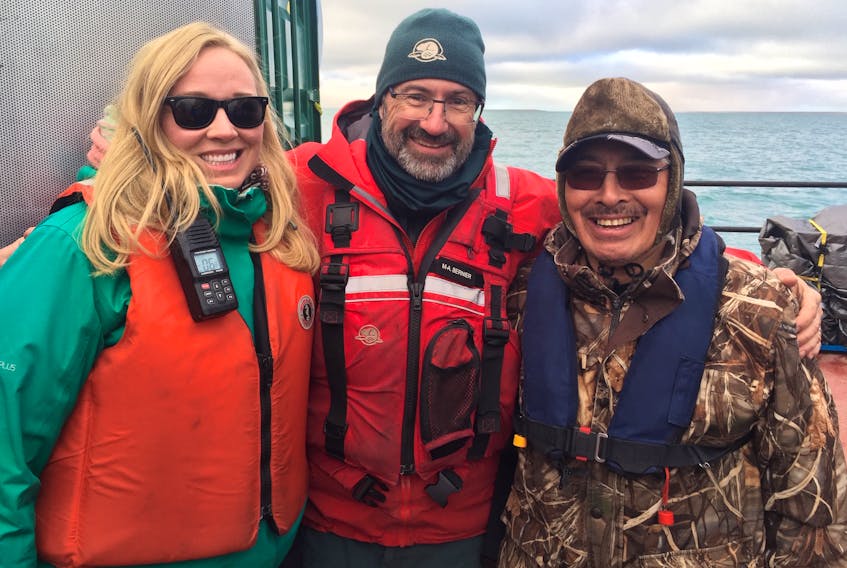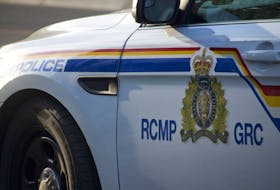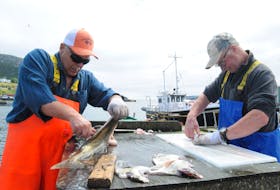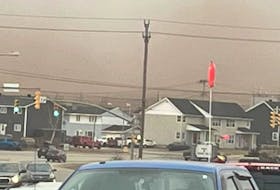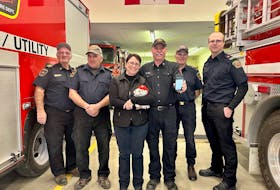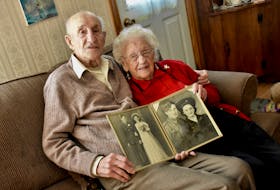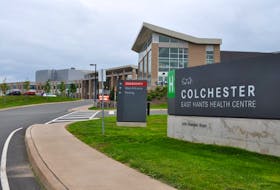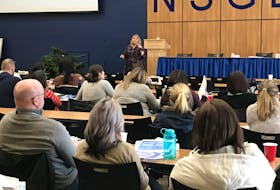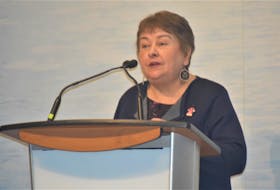ST. JOHN'S, N.L. — Internationally recognized circumpolar archeologist Latonia Hartery will give the 13th Bartlett Lecture on Thursday night in St. John’s.
In the lecture, “Newfoundland as Part of the North,” Hartery will discuss the province as a gateway to the Arctic, as well as the critical role Newfoundland played in Arctic exploration during the 1900s.
Hartery will illustrate her lecture referring to the adventures of Capt. Bob Bartlett and her own Arctic expedition experience over the past two decades, as well as archeological and historical examples that tie Newfoundland to people and places in the circumpolar world.
The lecture will be held at 7:30 p.m. at Hampton Hall in the Marine Institute. It is a free, public event. Doors open at 7 p.m.
“I’m thrilled to do it because it’s another way to share what I know. I don’t think there is any point to going to all these places and doing all these things if I can’t share the knowledge and the things I’ve learned,” Hartery said. “The Bartlett Lecture is a perfect way to use my own experience, say things about Bartlett’s adventures, but also one of the key things I’m most happy about, too, is to put Newfoundland and Labrador in the context of the exploration of the North. We’ve always been very involved in that, a kind of gateway to the North, but we don’t often talk too much about what our role and position is. And the thing to keep in mind is that, yes, Bartlett went to all those places, but he took a lot of Newfoundlanders with him. He is the best known, but there were a lot of other Newfoundlanders who went with him who had key roles in some of the things he did. I want to shine a light on that.”
Hartery grew up in Bay d'Espoir on the province's south coast. Her research has taken her to the Canadian Arctic, Greenland, Iceland and Scandinavia.
She has received a number of awards, and in 2018 became the first Newfoundland and Labrador woman to be made a Fellow of New York City's famed Explorers Club.
The induction into the Explorers Club is an honour reserved for some of the world's most famous explorers and visionaries. In 1927, Bartlett won the Explorers Club Medal for his Arctic expeditions and mapping of the North.
Hartery has met many famous explorers over the years, and during the Explorers Club annual dinner last March in New York City, she met a bunch of explorers who went further, literally, than any other humans in the history of the Earth — the living Apollo astronauts.
“They celebrated all of the Apollo astronauts, and all of the surviving Apollo astronauts were in attendance, including Buzz Aldrin and Charlie Duke,” Hartery said. “It was really just fascinating being around them, not only because of the historical component, but what I saw in those surviving astronauts were people who in their later ages are still so enthusiastic about space, and space exploration.”
Charlie Duke, who at age 36 was the youngest man to walk on the moon — he piloted the lunar-landing module during Apollo 16 — told Hartery a humorous story about NASA bureaucracy.
“We were discussing his memories about his time on the moon,” Hartery said. “And Charlie Duke told me when he went to the moon, NASA made him fill out a travel claim. What a fascinating story told in terms of the bureaucracy. Earth to the moon, the moon to Earth. He had a photo of the travel claim.”
The Bartlett Lecture is a good fit for Hartery, who shares Bartlett’s love of exploring the North.
In September with Adventure Canada, Hartery got to visit the wreck site of the HMS Erebus. Passengers of Adventure Canada were the first members of the public to visit the site. The visit was a trial by Parks Canada in creating a visitor experience for the wreck site, which is managed jointly by Parks Canada and local Inuit.
“We were on the barge above the wreck and we could see on the little monitors what they were doing,” Hartery said. “The underwater archeologists were working on the wreck. We got to see some of the artifacts they were bringing up, as well.
“The other good thing about it was that I was with other Newfoundlanders and Labradorians. The Inuk expedition leader was Jason Edmunds from Labrador, and his father, Randy, was there with us. And Derek Pottle, another Inuk from Labrador. In my zodiac there was an EMT (emergency medical technician) from Newfoundland. It couldn’t have been planned better.”

